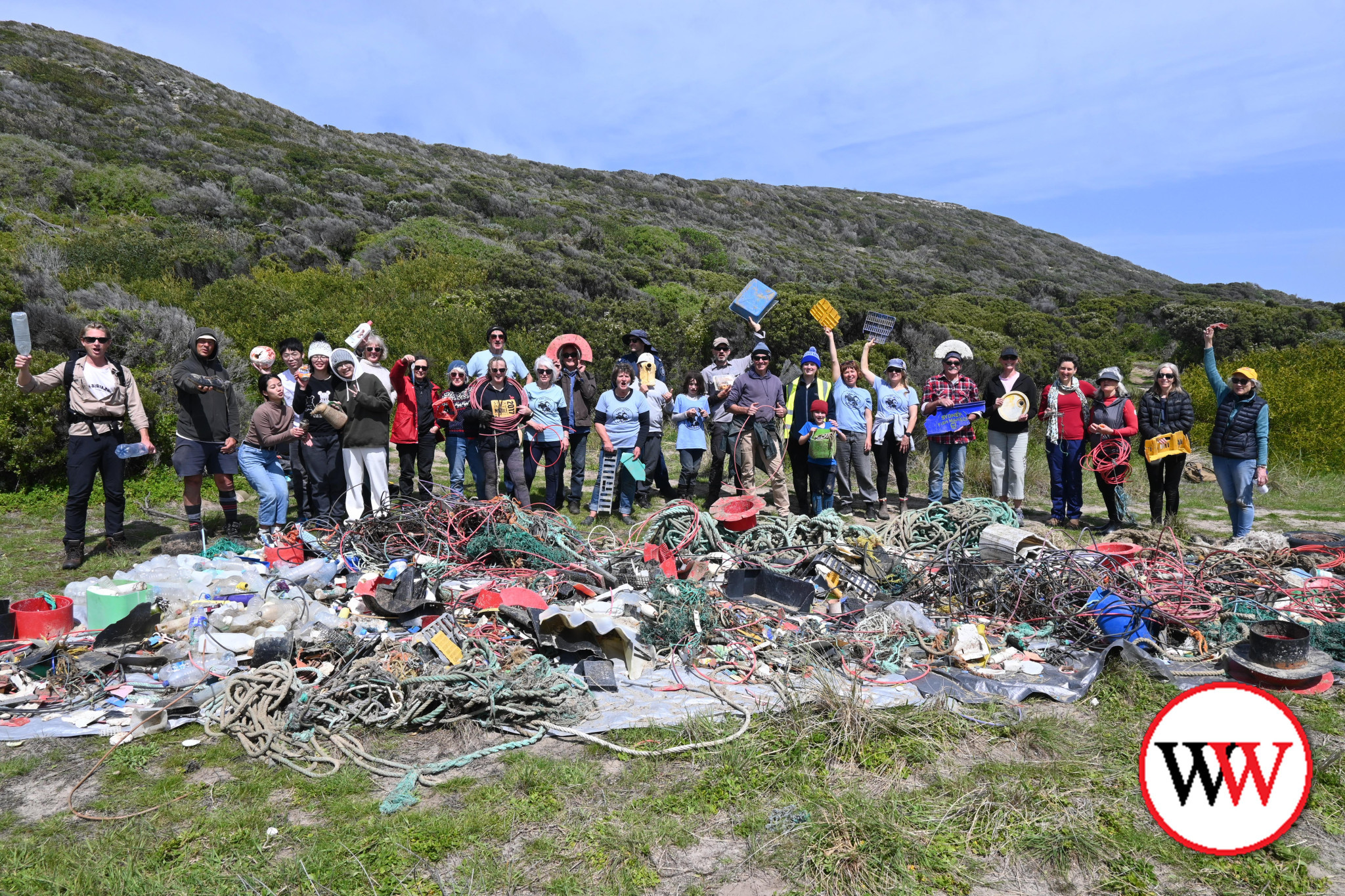Community
11 October, 2024
Volunteers clear 738kg of rubbish
BEACH Patrol volunteers put in a huge effort last weekend to clear a massive 738 kilograms of marine debris from Discovery Bay.

A group of 29 volunteers from Beach Patrol 3280-3284 spent just under two and a half hours on Sunday clearing rubbish from the bay.
The huge haul was the largest ever removed in a single clean-up event by the group.
Supported by Glenelg Hopkins CMA, Victorian Fisheries Authority, Coles Coaches, and Aurora Surf, the event saw participants travel from Warrnambool, Koroit, and Port Fairy.
The group was joined by locals from Portland and Cape Bridgewater to tackle the pollution at this remote beach.
Discovery Bay, situated west of Portland, stretches for 50 kilometres towards the South Australian border.
This iconic location is not just known for its breathtaking landscapes but also forms part of the famous Great Southwest Walk and holds a RAMSAR listing due to its importance as a habitat for migratory birds like the Sanderling, which travels from Siberia every summer.
The area also borders the Discovery Bay Marine National Park, a vital sanctuary for a range of marine life, including penguins, Australian Fur Seals, the nearby Gannet colony, and even Southern Right and Blue Whales.
According to Beach Patrol volunteers, this precious environment is under threat from the relentless tide of marine debris washing in from the open ocean.
Earlier this year, Beach Patrol leader Colleen Hughson conducted a survey along the length of Discovery Bay.
She estimated that over eight tonne of rubbish sits on the shore, slowly disintegrating into harmful microplastics.
The clean-up crew’s work last weekend was a crucial step in stemming the tide of this plastic pollution - but the scale of the task left volunteers feeling both resolute and daunted by what still remains.
“Volunteers encountered a distressing mix of plastic waste, including foreign-labelled drink bottles, detergent containers, and industrial fishing gear like pot necks, bait baskets, and plastic cane, much of which likely originates from South Australia’s Rock Lobster Fishing Industry,” Ms Hughson said.
“It’s evident that this pollution isn’t the result of careless beach-goers but is instead dumped by merchant ships seeking to avoid waste disposal fees at Australian Ports (a crisis that demands attention and accountability).”
Despite their incredible effort, volunteers noted the seemingly insurmountable scale of the problem, with layers of plastic entangled in seaweed and scattered across the tideline, from large nets to microplastics and nurdles.
Without ongoing clean-up efforts, this waste will continue to break apart, posing an even greater threat to marine life and the broader ecosystem.
“Every piece of rubbish we remove makes a difference,” one volunteer said.
“But the solution needs to go beyond what volunteers can achieve. We need urgent government action and support to address this crisis at its source.”
Beach Patrol 3280-3284 extended its thanks to all volunteers who gave their time and energy to make this clean-up possible.
Their efforts showed that a cleaner ocean benefits everyone, but the scale of this challenge required a concerted effort from both the community and decision-makers.
“Join us in the fight for our oceans,” Ms Hughson said.
“Beach Patrol 3280-3284 urges the government and international bodies to take meaningful steps in regulating ocean waste and enforcing stricter penalties on ships that dump their waste at sea.
“We can no longer afford to ignore this crisis, and it’s time to protect our coastlines and marine life for future generations.”
For more information or to get involved in future clean-ups contact Beach Patrol 3280-3284.
